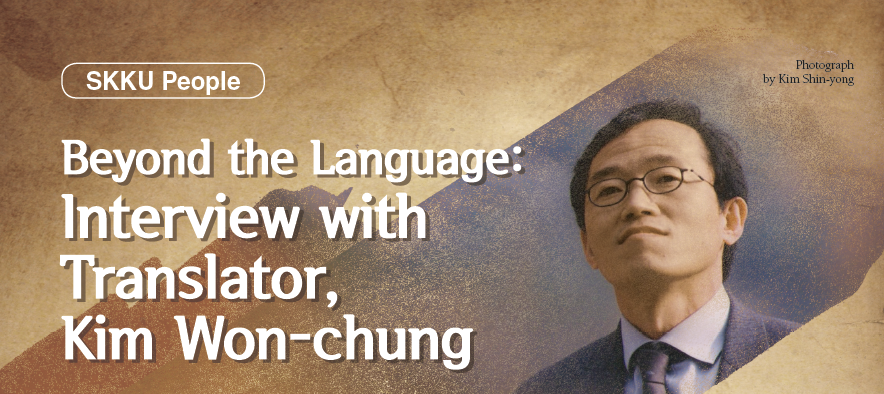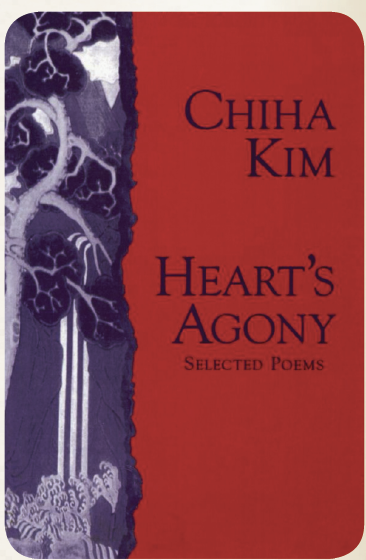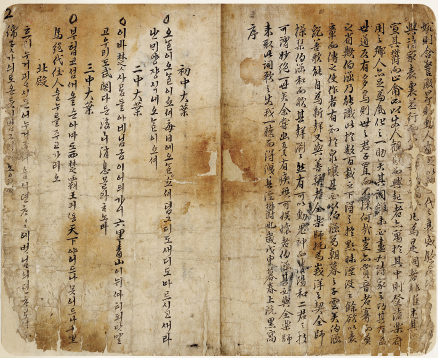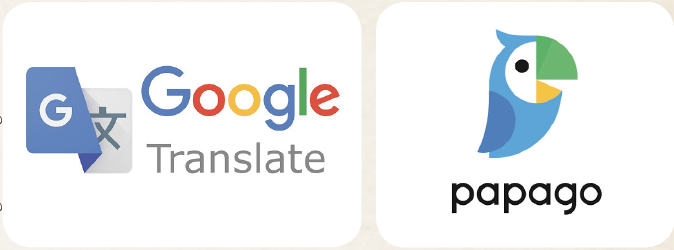
Translations are essential in current society since people who use different languages increasingly interact with each other as transportation and technology continue to develop. Following this trend, Kim Won-chung, a professor of English Language and Literature at SKKU, has put effort into translation for a long time to introduce various literary works to an increasing number of people. He has translated and published in the United States 13 books of Korean poets, including Kim Chi-ha, Shin Kyung-rim, and Hwang Ji-woo, and also translated many books such as H.D. Thoreau’s The Natural History Essays into Korean. Therefore, the Sungkyun Times (SKT) met up with translator Kim Won-chung to discuss his life story and his perspective towards literature as a translator.
Kim Won-chung: Life Before Becoming a Translator
1. Please introduce yourself to the Kingos.
I am a professor of English Language and Literature at SKKU and am currently teaching contemporary American poetry, ecological literature, and translation.
2. Please tell us about your life journey to translation.
When I was a high school student, I used to read English books such as The Pilgrim’s Progress and the English version of the Bible, which intrigued me enough to study English literature. With a desire to learn more about literature, I went to graduate school abroad in order to study English literature in-depth. That was when I met up with quality professors and first learned about ecological literature. When I returned to Korea, I wondered what I could do as a scholar of English literature. Therefore, I started to translate Korean literature, especially poetry, to promote Korea abroad. As I got more interested in ecological literature, I founded the Association for the Study of Literature and Environment (ASLE-Korea) in 2001. I worked hard to introduce global issues regarding ecology to Koreans through translating literature.
3. Is there a particular reason that you have studied Robert Browning’s love poems for a long time?
I think Browning’s work is very attractive. While Alfred Tennyson and other Victorian poets prominently used sentimentality in their poems, Browning stood up against the trend. Instead, he wrote tender and passionate poems about love affairs. Then, I became intrigued by his incomplete and imperfect poetic theme and form, which is involved with an eternal striving towards an unattainable ideal. It means that happiness and beautiful moments pass in a flash, but their ripples remain in our minds, which makes us continually strive for the ideal.
4. As you have studied and translated poetry your whole life, what do you think about translating poems?
I think poems show me something new by revealing things that I have not even thought of. Also, I can get out of narrow perspectives by reading poems that provide various shades of life with new angles of vision. Humans are incomplete beings and inevitably biased, viewing the world from a male or female perspective. However, poems have the power to make me encounter what I do not know, and this can change a life and lead to a new path with an extended perspective. In a way, the history of the world is the history of translation because human experiences, ideologies, and even culture are transmitted to different countries through translation. Also, expressing thoughts in words is another kind of translation. Not only the language but also the words in mind need to be translated in order to communicate with others. Since every culture and word surrounding us is translated, we are living in a world of translation.
From the Perspective of Translator Kim Won-chung
5. What do you think is the most important part to consider in translation?
There is a lot of controversy regarding the role of translators, whether they should be transparent in works or be faithful to the authors or readers. In my opinion, translators should not simply replace words in other languages but interpret the meaning of words and sentences on their own. For instance, sheets of music do not produce a sound by itself but only show musical pitches and rhythms. However, each conductor and player creates unique sounds in many different ways from the same sheets using their own interpretations and skills. Similarly, translation is a work that is produced by a translator’s working on a given text. It means that the text or the literature might deliver different meanings from its origin, depending on the translators. So, I think the translator should consider and interpret meanings, context, and even culture to translate rather than only maintaining fidelity to words. Although every word may not be translated faithfully to the original text, the translated work, especially if it is a literary work, should keep the linguistic, artistic, and aesthetic beauty in itself.
6. Amongst your work, which one was the most difficult or enjoyable to translate?

Since English is not my mother tongue, it is much more difficult to translate Korean poetry into English, rather than the other way around. So, I cooperate with English native speakers to overcome such difficulties. Among them, the most challenging work was Five Thieves, written by Kim Chi-ha. It was difficult to translate Korean onomatopoeia and words that do not exist in English, such as “saksini geunjil-geunjil”, which describes body itches. Also, the poem has rhymes in accordance with the rhythm of pansori, traditional Korean music, so it was very difficult to convey such melodies and tones in English. Despite these difficulties, I worked passionately, thinking I would translate at least one line per day. Since the Five Thieves was the most challenging, I felt relatively comfortable working on other literature after finishing the task.
7. You are obviously interested in translating ecological literature. Please briefly introduce the concept and your opinion of it.
Since I am interested in human relationships, I can smoothly move on thinking about the relationships between humans and the environment and studying ecological literature. Ecological literature is the environmental humanities in a broad term, which analyzes and investigates the complex interrelationships between human activities and the amazon.com Heart’s Agony environment. It does not try to solve the environmental problems in scientific ways, but it addresses these issues through humanistic questions and knowledge. At the peak of modern civilization, people utilize nature as a resource to achieve their goals without knowing serious problems in ecology. If this situation continues, humans will face the end of all life in a short time. So, it is important for people to be aware of these significant issues.
8. Are there any other areas that you are interested in?
I have translated the modern poetry of my favorite poets, so now I am working on translating classical literature. I am especially focusing on translating hansi, Korean poetry written in classical Chinese. Some of the works will be published soon, and I am presently working on Cheongguyeong-eon, written by Kim Cheon-taek, which is known to be the first collection of sijo, a traditional three verse Korean poem.

The Future of Kim Won-chung
9. As Artificial Intelligence (AI) and translation technology have gradually developed, what is your opinion about these changes in the translation industry?
Although current technologies show some surprising results in translation, it seems difficult for AI to translate literary works. The translation is a matter of interpretation, and there are various things to consider, such as time period and context. Because a subtle nuance of words can result in tremendous differences, it might be difficult for AI to interpret and translate properly, considering all those factors with independent and creative thinking.

10. What are your plans and ultimate goals?
I have passionately read, translated, taught, and written poetry my whole life. Therefore, I would like to write more of my own poems in the future. I think I will continue to do what I am currently doing. As for my ultimate goal, I want to be remembered as “a good person”, rather than becoming only “a successful person”. Although it is difficult to earn the sincere respect of others and even more difficult to maintain that respect, I would like to become someone who is a positive influence on others.
11. Are there any final words for the Kingos?
I want each student to become a person who lives with their own thoughts and dreams. It is sad to me that many students live without thinking about their future and do not find and pursue their dreams. I hope they work hard on pursuing their own dreams and become successful. Then, beyond success, I want each of them to become “a fragrant person”. Just as scent pervades whenever a person passes by, I hope their words and lives permeate into others, reverberating.
